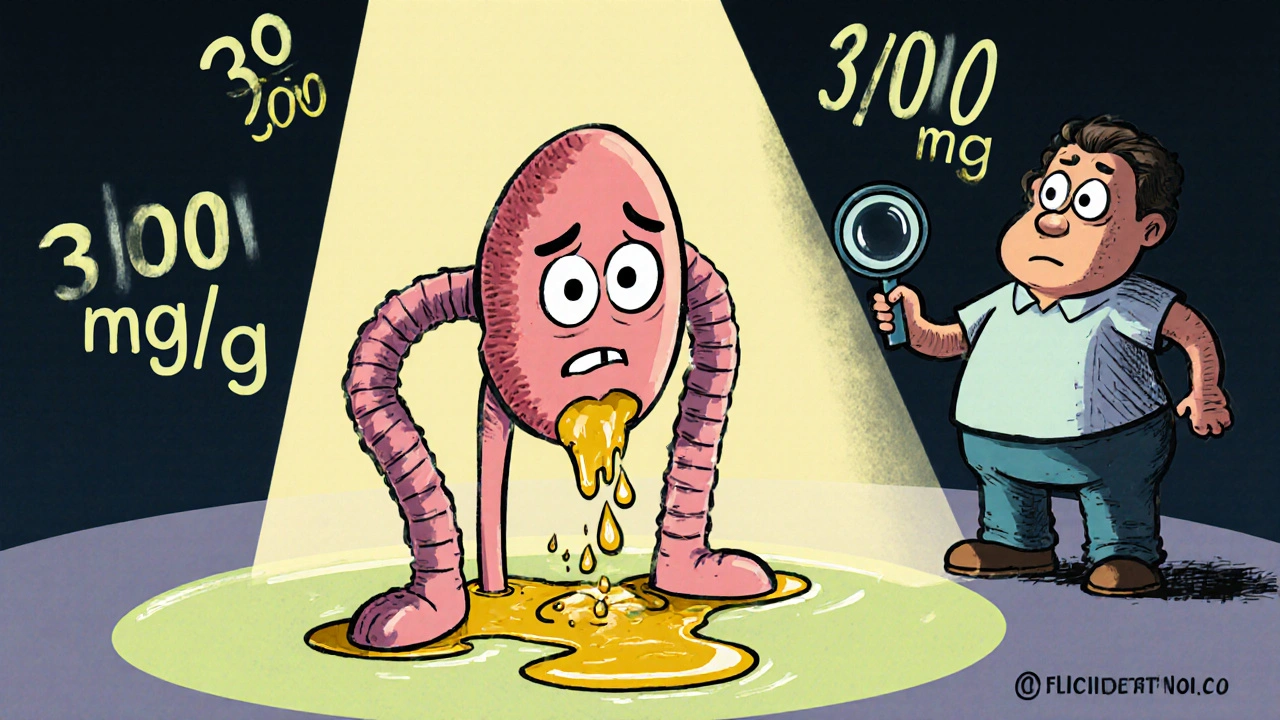Albuminuria: What It Means, Why It Matters, and How It Links to Kidney and Diabetes Health
When your urine contains too much albumin, a protein normally kept in the blood by healthy kidneys. Also known as proteinuria, it’s one of the earliest warning signs that your kidneys aren’t filtering properly. This isn’t just a lab result—it’s your body’s way of saying something’s wrong with how it handles fluids and waste. Albuminuria is especially common in people with diabetes, a condition where high blood sugar damages small blood vessels, including those in the kidneys, and in those with high blood pressure, which puts extra strain on kidney filters over time.
Think of your kidneys like a fine mesh sieve. Healthy ones keep proteins like albumin inside your blood, where they belong. But when that mesh gets damaged—by years of high sugar, uncontrolled blood pressure, or inflammation—it starts letting albumin slip through. That’s albuminuria. It doesn’t always cause symptoms at first, which is why doctors test for it during routine checkups, especially if you have diabetes or heart disease. Left unchecked, it can lead to chronic kidney disease, a slow, silent decline in kidney function that can eventually require dialysis. The good news? Catching it early gives you a real shot at slowing or even stopping the damage.
Many of the articles here connect directly to albuminuria because they cover the root causes and related conditions. For example, if you’re dealing with fluid retention, it might be tied to kidney dysfunction. If you have diabetic ketoacidosis, a severe complication of uncontrolled diabetes, your kidneys are under massive stress and may already be leaking protein. Even treatments like diuretics, medications used to remove excess fluid, are often prescribed when albuminuria signals worsening kidney function. You’ll also find info on how salt restriction, a key part of managing kidney disease, helps reduce pressure on your kidneys and lowers albumin leakage.
Albuminuria doesn’t happen in a vacuum. It’s the quiet alarm bell that ties together diabetes, hypertension, kidney damage, and the medications used to treat them. The articles below don’t just list facts—they show you how these pieces fit. Whether you’re trying to understand why your doctor ordered a urine test, or you’re managing a condition that puts your kidneys at risk, what you’ll find here gives you the real picture—not just what albuminuria is, but why it matters, what to do next, and how to protect your health before it’s too late.
Diabetic Kidney Disease: How Early Albuminuria Signals Risk and Why Tight Control Saves Kidneys
Diabetic kidney disease often starts with silent albuminuria. Early detection and tight control of blood sugar, blood pressure, and targeted medications can prevent kidney failure. Learn how to act before it's too late.






